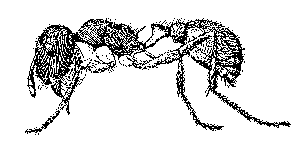Psycholinguistic
Theory of
Literature:
A Metacritical Inquiry

Sapir's distinction between morphemically opaque and morphemically transparent words also reminds us very much of Potebnja's obsolete and living etymological derivatives.
Right. And then:
Its structure is thereby reduced to two constituents external form and signification -- and its potential polysemy to a referential monosemy.
In the very first Whole Earth Catalogue, among all the great and interesting books, Stewart Brand planted an obscurantist work, The Neo-Agricultural Wet-Land Practices of Third Century China, Volume III, or some such. We addicts of the WEC dutifully ordered it (at $27 a toss) which drove the publisher looney since there were no takers whatsoever for Vols. I, II, and IV. The book made no sense anyway, unless one was into Third Century Chinese bok choy production quotas. For that reason, we hereby nominate Alexander A. Potebnja's Psycholinguistic Theory of Literature for the Stewart Brand Fuliginousness and Emunctory Book-of-the-Year Award for 1989.